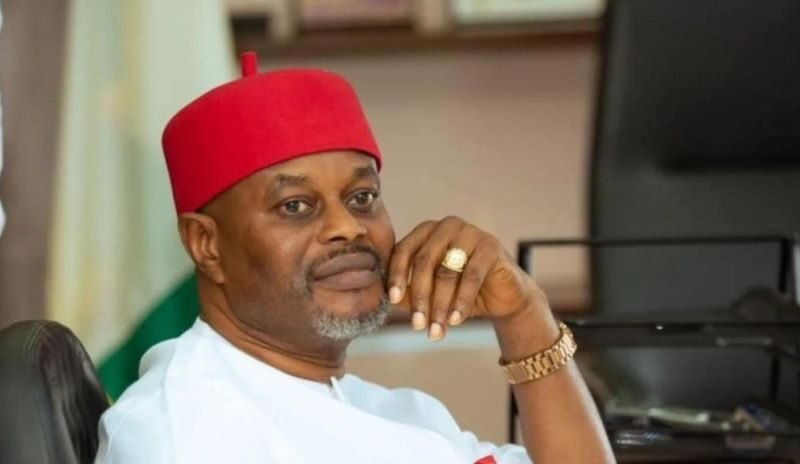FRESH revelations have emerged on how President Bola Ahmed Tinubu personally ordered the resignation of the former Minister of Innovation, Science and Technology, Chief Uche Nnaji, following allegations of certificate forgery that rocked his tenure.
According to findings, the embattled minister’s exit was not voluntary but the outcome of a discreet directive from the President after multiple reports accused Nnaji of submitting forged academic and NYSC certificates during his ministerial screening in 2023.
Nnaji, who claimed to have earned a Bachelor of Science degree from the University of Nigeria, Nsukka (UNN) in 1985, was later accused of falsifying both his degree and NYSC discharge certificates.
Presidency sources told this newspaper that President Tinubu summoned Nnaji to the Presidential Villa earlier in the week and asked him to tender his resignation immediately to protect the integrity of his administration.
“The President invited him over to the Villa and asked him to resign. He didn’t threaten him with a sack — there was no need for that. He appointed him and could as well ask him to go. Nnaji had no choice but to comply,” a top presidency source said.
Another senior aide described Nnaji’s continued stay in office as “untenable,” adding that his case had become an embarrassment to the Federal Government.
“He was becoming a liability. The President had to move fast to prevent further embarrassment. It was better to give him a soft landing than drag the government’s image through more controversy,” the aide explained.
The scandal broke after an investigation by Premium Times alleged that Nnaji never completed his university education. The report claimed that the minister forged both his degree and NYSC certificates submitted to the Presidency and the National Assembly.
To verify the allegations, Premium Times filed a Freedom of Information (FOI) request to the University of Nigeria, Nsukka, seeking Nnaji’s academic records.
In response, the university’s Vice-Chancellor, Prof. Simon Ortuanya, in a letter dated October 2, 2025, confirmed that the institution never issued a degree certificate to Nnaji, as he did not complete his course of study.
In a desperate attempt to stop further revelations, Nnaji approached the Federal High Court in Abuja to restrain the university from releasing his academic records.
Through an ex parte motion (FHC/ABJ/CS/1909/2025), Nnaji sought an injunction barring UNN from “tampering with or disclosing” his academic file.
However, in a ruling delivered on September 22, Justice Hausa Yilwa dismissed his request, effectively clearing the path for the university to release the damning records.
In a statement announcing his resignation, Nnaji maintained his innocence, describing the allegations as “politically motivated and malicious.”
He said his resignation was not an admission of guilt but a sacrifice to protect his integrity and avoid distractions to the Federal Government’s Renewed Hope Agenda.
“These unfounded allegations and media distortions have not only caused personal distress but have also begun to distract from the vital work of the ministry,” Nnaji said in the statement titled, “My Decision to Step Aside in the Interest of Honour.”
The former minister added, “My decision is to uphold due process and respect ongoing judicial proceedings. I cannot in good conscience allow distractions to overshadow the noble objectives of Mr. President’s Renewed Hope Agenda.”
The University of Nigeria’s role in the saga has also drawn scrutiny. In December 2023, the university’s registrar, Mrs. Celine Nnebedum, had reportedly confirmed that Nnaji graduated from the institution.
However, she later recanted that statement in May and again in October 2025, acknowledging that Nnaji did not complete his degree programme.
A presidency official suggested that the conflicting statements from UNN may have initially misled both the Department of State Services (DSS) and the Senate during Nnaji’s screening process.
“It’s possible the DSS relied on the university’s earlier communication. They have always done thorough vetting. Maybe this one slipped through because of the school’s inconsistent letters,” the source said.
The DSS, meanwhile, has denied any wrongdoing, insisting that the agency followed due diligence in its vetting process. A top security source said critics were “unaware of the behind-the-scenes complexities” of such background checks.







